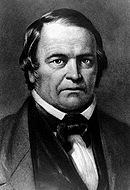 Advent Christian History
Advent Christian History
By Lee E. Baker, D.D.
The Advent Christian denomination was organized in 1860 and is one of the groups that comprise the Christian Church. Like other communions, it maintains its own publishing, educational and foreign mission enterprises. Its local, state, and provincial conference organizations in the United States and Canada, along with its several institutions, are associated together as the Advent Christian General Conference of America, the denominational headquarters being maintained at Charlotte, N.C.
The Advent Christian movement traces its origins to a notable revival that took place 175 years ago in the eastern United States, especially in New York State. The powerful motivation behind this revival was a rediscovery of the biblical doctrine of the personal return of Christ to this earth to establish the everlasting kingdom of God.
The person through whom the Spirit moved in this momentous revival was a self-educated man of keen intellect and oratorical powers, a patriotic and honored citizen of Hampton, New York named William Miller. Giving up his earlier deism, he accepted the Bible as the word of God, became a Christian, and subsequently a Baptist minister. Through a comparison of history with biblical prediction, his faith in the prophecies concerning the Second Advent of Christ sent him forth on a crusade that resulted in the conversion of hundreds of infidels and skeptics and in turning thousands to a belief in the imminent return of the Lord Jesus Christ.
But the basis of the Advent Christian fellowship (of which Mr. Miller never became a part) was not only his doctrine of the Lord’s return; with it was coupled another fundamental and related teaching respecting the mortality of man. This latter doctrine was introduced into Adventism by George Storrs, Charles F. Hudson, and other contemporaries. The association of these two doctrines made for clarity in the efforts of the Adventual fathers to understand the mercy, grace, and justice of God as simply stated in the golden text of the Bible, John 3:16.
The founding fathers disclaimed any intent to form a separate denominational communion. Finding themselves cut off, however, by persecution and excommunication from the churches of their choices when their witness was repudiated, their common need for Christian fellowship and service caused them to form local groups which eventually became associated together in one united body. To this new entity they eventually gave the name Advent Christian, thus uniting their belief in the blessed hope of the Lord’s return and the mortality of man with their profession of Christian discipleship.
Advent Christians believe that the Holy Scriptures are an inspired, authoritative revelation of God to men. They believe that this revelation throws revealing light upon the mystery of origins, the march of history, the nature of man, his future and the destiny of the earth. They believe that the Bible sets forth the truth concerning God and his grace toward men as manifested by Jesus Christ and by the Holy Spirit, that these are powerful agents of the grace of God in preparing the way for faith and in molding human character after the one perfect example and that they afford divine comfort to those who put their trust in God. They believe that the Holy Scriptures should be taken literally when possible and that no basic Christian teaching should be founded upon isolated parabolic or symbolic passages, but that all doctrines should be defined in the light of and in harmony with plain literal statements of the Word.
Although Advent Christian believers do not set forth a well-defined creed, because they declare that the Bible is their only rule of faith and conduct, yet they do have a “Declaration of Principles” which is available in printed form. The first ten points in the declaration were the result of earnest reflection and careful collaboration on the part of the early Adventual fathers and were adopted by the vote of the Advent Christian General Conference at Boston on January 25, 1900. An eleventh point was subsequently added.
Advent Christians profess to hold in its purity “the faith which was once delivered to the saints” (Jude 3). Advent Christians assent to the Apostles’ Creed, but they reject the incorporation into Christian thought of the Platonic doctrine of the natural immortality of the soul and of all other dogmas not taught in the Bible.
